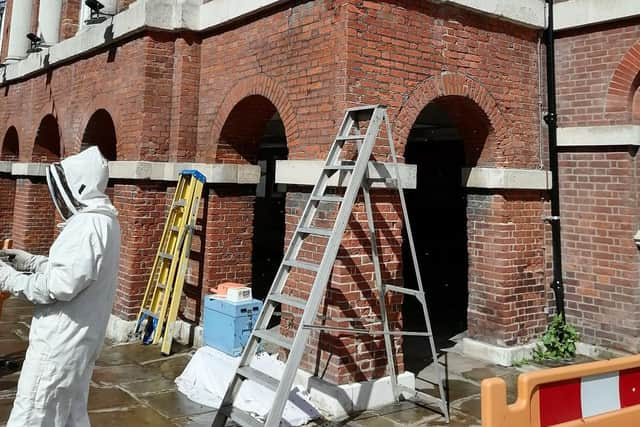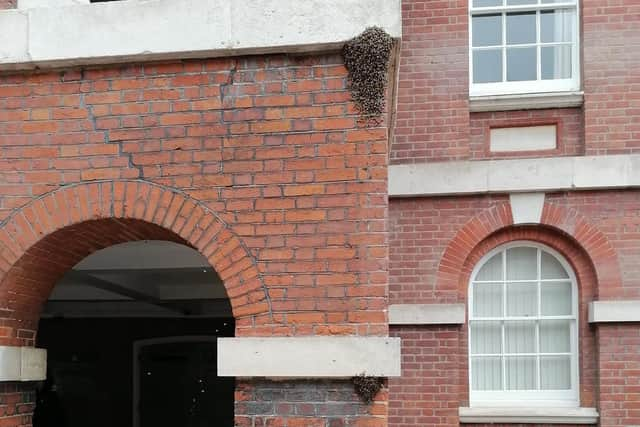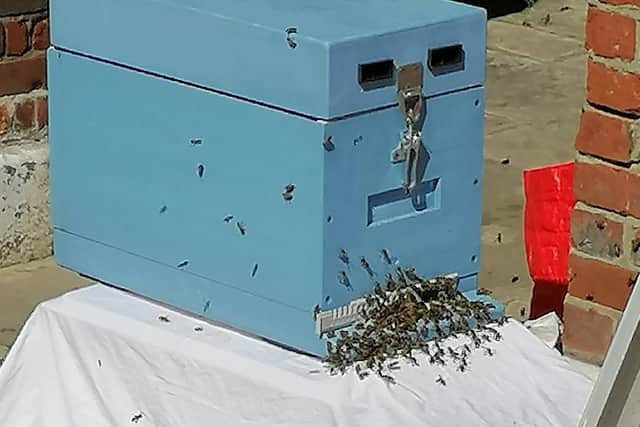Advice given after bees swarm in Chichester city centre
This article contains affiliate links. We may earn a small commission on items purchased through this article, but that does not affect our editorial judgement.
and live on Freeview channel 276
Sam Chapman co-owner of Leythorne Honey Bee Farm in Vinnetrow Road, was called the The Council House in North Street following reports of a swarm of bees flying around on Saturday (May 15).
She said "We got the phone call just gone 2pm and we got there just after 3pm. A lady had called me saying they were 'flying all over the place'. Sometimes they can get a bit confused."
Advertisement
Hide AdAdvertisement
Hide AdThe bees split in to two swarms with one group following the queen and the other grouping about a meter away. Bringing a temporary hive box, known as a 'nuc' to the scene, Sam stayed until 9pm until the very last bee was safely inside.


No members of the public were stung.
She added: "I know a lot of beekeepers just shut them in and go but because this was in such a public place we waited until the last one was in. There was probably about 4,000.
"With other swarms you can be looking at ten or 20 thousand bees."
Bees have been swarming later in the year, Sam said, due to the colder weather.


Advertisement
Hide AdAdvertisement
Hide AdSam said: "Before they start to swarm, honey bees will send scout bees out which try and find a place that is suitable."
Now she has given advice to Chichester residents on the steps they can take to help bees.
"You can just sow little patches of wildflowers or even just leave your lawn to grow a bit longer."
An especially beneficial pollenator, the Borage plants, is great for pollinators due to it being able to replenish its nectar every two minutes.


Advertisement
Hide AdAdvertisement
Hide Ad"If you have got a swarm, you can either contact us directly or you go onto the British Beekeepers Association Swarm Map and it will show you the swam collectors in the area. If anyone just wants a bit of advice they can also get in touch with us - we are big nature lovers."
You can get in touch with the team at Leythorne Honey Bee Farm by visiting their Facebook page here or by calling Sam on 07974225680.